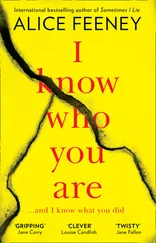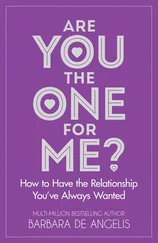“How did you feel when your best friend died?” the reporters asked me. I quivered, couldn’t speak. I’d waited for a chance in the spotlight, but now I was flubbing it. I felt like a fraud. I wasn’t Jenny’s best friend anymore, not really. History was being revised; Kim was written out. And I felt guilty. Guilty for all the times I’d begrudged Jenny’s good fortune. Eventually, I thought, everyone has an unlucky break. She was the pretty one, and she had an alliterative American name. But I was alive. And that was something I could never take for granted in the nuclear age.
“Jennifer Jones’s work had just begun,” my mother said. “My daughter and I are going to finish it.”
In the morning, news of the foundation made it into the Washington Post. There was a picture of Jenny, not my mother or me. But I was declared “Jennifer Jones’s best friend” in print. Kim no longer had any claim. On the record, Jenny was mine.
Donations to the foundation poured in after Jenny’s death, but within six months people were distracted by other Cold War stories. Nineteen eighty-five turned out to be the year of the spy. There was Yurchenko’s defection. Edward Lee Howard sold secrets to the Soviets, then escaped into the New Mexico desert. And Vladimir Alexandrov, the Soviet scientist who helped develop the theory of nuclear winter, vanished from Madrid. The Soviets claimed he was kidnapped by the CIA, but he was never heard from again. Construction on the new American embassy in Moscow was halted that year when the United States realized that the whole building was bugged. And then in 1986 the Challenger exploded our space program. There was no refuge from terror.
But then the disaster at Chernobyl renewed interest in the foundation. An anonymous donor sent the first American high-school student—a seventeen-year-old girl from Sacramento, who won the essay contest my mother judged—to Moscow in the summer of 1987.
Would Jenny and I have been friends in high school? Would she have been one of those girls who developed an eating disorder? There were a lot of them at our school. In the cafeteria the anorexics picked nervously at bowls of sprouts. The bulimics slithered to the bathroom after lunch and reemerged with eyes bloodshot from purging. One girl was famous for eating just one apple a day. It’s hard to picture Jenny as a teenager. Her body still held its childish contours when she died. Some of the girls in our sixth-grade class needed bras; the most advanced were already whispering about tampons. But Jenny’s skin was unblemished, her ears not yet pierced. Her mother told her that she could start shaving her legs at thirteen. She didn’t reach that milestone.
In the locker room after high-school swim practices, I tried to imagine Jenny among the other girls. There were no doors separating the showers, and so we were forced to cluster like refugees, thirty of us rotating under three showerheads, passing around bottles of Ultra Swim shampoo while the blondes among us complained that the chlorine turned their hair green. The most self-conscious girls kept their suits on and soaped their bodies under the fabric with surreptitious hands. You could tell what body part they were most insecure about: the flat girls like me kept their arms folded in front of their chests; the bottom-heavy girls kept their backs to the walls. We saw one another in swimsuits in the pool every day, but in the locker room we turned shy. Only the team captains—confident in their lean, strong bodies—had no shame. My sophomore year the captain was a senior named Miranda who massaged soap into her unruly black pubic hair in front of all of us. Her nipples were large and dark, and there was a bristle sprouting from one, but there was something mesmerizing about how sure of herself she was. I was on the abashed end of the spectrum—I kept my suit on, only rolling it down halfway so that I could clean my bare chest—but I suspect that Jenny would have been unapologetic about her nudity. She would have turbaned a towel on her head and coaxed Jergens into her damp skin while everyone else dressed in quick, furtive strokes.
After she died, I found myself writing letters to Jenny. “How could you lie to me?” I wrote . “How could you leave me?” I furrowed the words I could never say when she was alive into handkerchiefs of paper and tucked them into our old secret spot in the wall of the Bishop’s Garden. And even when I’d made new friends and discovered, in adolescence, that my sad stories were valuable currency with the skinny New Wave boys I favored, I still wrote to her sometimes. The letters became a sort of diary in which I told her what she was missing. Every new experience was muted by her absence; I needed to confide in her to make the colors pop. “I tried pot. It made me sleepy,” I wrote . “I lost my virginity on a basement floor after the Super Bowl. The Redskins won.” I wrote , “I didn’t get into Harvard, even though I’m a legacy.” My anonymous confessions may still be there decomposing in our dead drop.
I’ve been told many times that I am too forgiving. Of the college friend who started sleeping with my boyfriend, of the boss who presented my ideas as his own, of the lover who made so many promises he couldn’t keep. “You’re too forgiving,” they say, as if it’s a character flaw. But I’m not sure I’m forgiving enough. And I have come to believe that forgiveness is the key to survival. It does no good to see everything as a struggle between opposing factions. Few things are that simple.
During my first month in Moscow, I visited Khrushchev’s grave. The headstone is half black, half white, a compromise reached after Soviet leaders couldn’t decide whether his tenure had been good or evil. It’s a narrow marble monument, toweringly literal, with a bust perched on top. It is in Novodevichy, the same cemetery where Chekhov and Gogol are buried—along with countless other artists capable of nuance that Khrushchev was not—and on that October day there was already snow on the ground.
It would be a long winter.
Here’s what there is absolutely none of in Moscow Privacy
Kay Thompson, Eloise in Moscow
JENNY WAS MET at Sheremetyevo Airport with smiles and flashing bulbs. But my arrival was more typical: I emerged from customs into a room of cold, leery eyes. Moscow was a furtive city. People were as closed and guarded as fists. Their faces hardened against possible scrutiny. The crowd lapped the door, waiting for arriving family members and friends, sizing up each passenger through a film of cigarette smoke. Being watched made me jittery, but the stares passed through me like X-rays. I was inspected and shunted aside. I wasn’t the one they were looking for. I felt like a minor cast member exiting the stage door, ignored by the crowd waiting for the ingenue.
It was the middle of September. It took longer than expected to get my Russian visa, so I had spent the summer after graduation in my old attic bedroom where the garret window looked directly at the house that had belonged to the Joneses. An older couple lived there now, and I would see the wife in the front yard in the mornings, pruning her garden in yellow clogs. In June she tended roses and hydrangeas. As the summer ripened, she focused on the annuals, heliotrope and impatiens. I worked as a barista at a local coffee shop, and while I perfected the art of latte foam, my mother made lists of things I’d need for my trip. Traveler’s checks. A tetanus booster. An HIV test. (The Russian government required proof that you weren’t HIV-positive before you were allowed into their country.) My mother filled Ziploc bags with Band-Aids, vitamins, water-purification tablets. My visa was good for sixty days, so I’d be back home in time for Thanksgiving. But my mother was still anxious. She paced my bedroom while I packed.
Читать дальше












